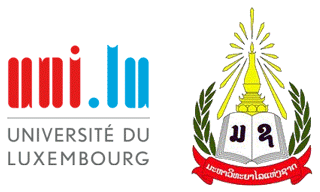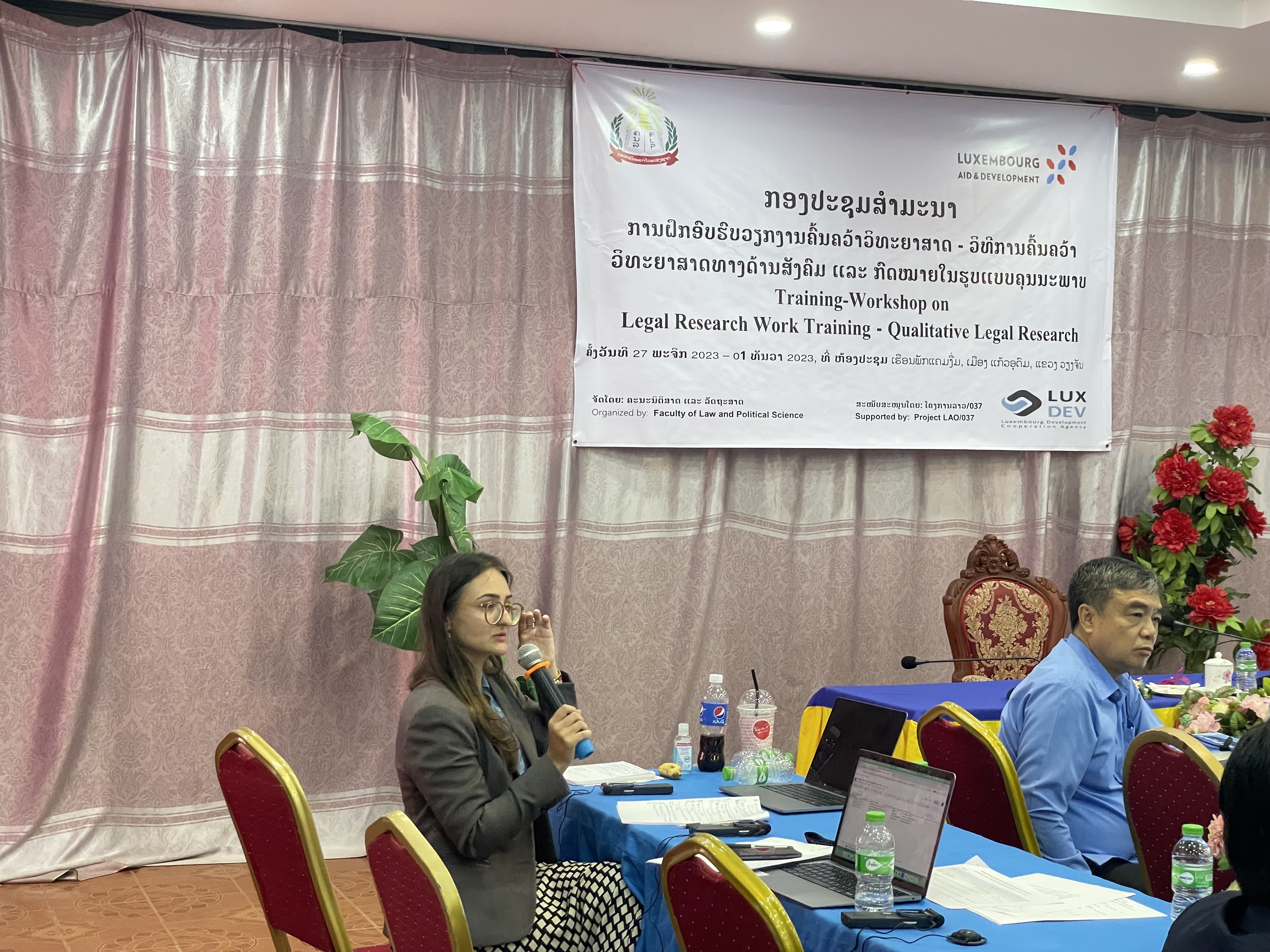The University of Luxembourg continues to support legal research in Laos. In this regard, a five-day workshop was hosted by the Research Division of the Faculty of Law and Political Science (FLP), National University of Laos (NuOL) with technical support from the University of Luxembourg Inter-University Cooperation Project Laos-Luxembourg, and financially supported by LuxDevelopment’s Project LAO/037 dedicated to legal research methodology, qualitative Legal Research on 27th December to 1st December 2023. The event took place in Thalath and was chaired by Mr. Bounkhong Phetdaohoung, Vice Dean of the FLP and Assoc. Prof Viengvilay Theingchanxay, the Dean of the FLP. The workshop brought together over 35 Lao lecturers from the FLP and NuOL, along with invited guest speakers, including Ms. Paulina Baschton, our Inter-University Cooperation Project liaison officer.
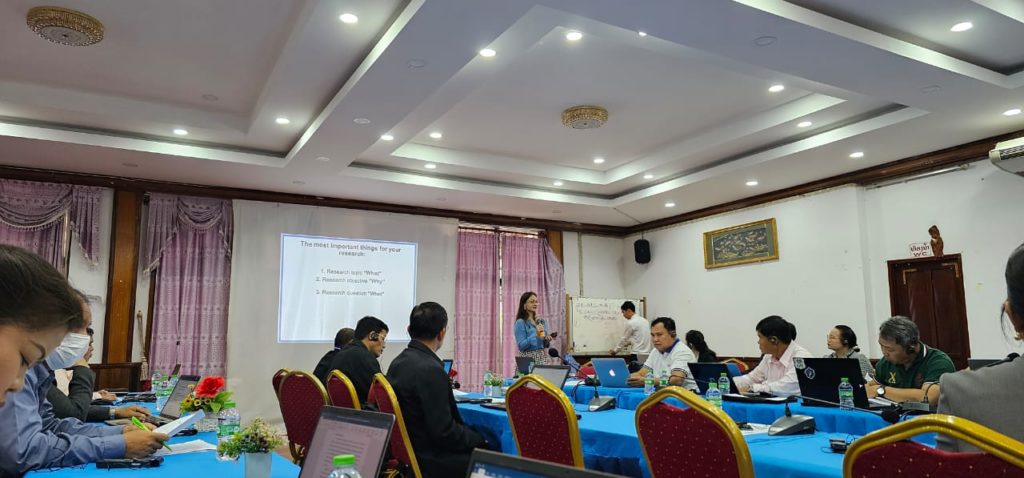
The workshop focused on the methodology of scientific research in the field of law. It aimed to provide an understanding of qualitative legal research. Participants followed presentations on the different types of qualitative legal research, learned how to design questionnaires and use basic data analysis. The workshop also covered the essentials of conducting a good research proposal and finding relevant sources for research. During the first day of the workshop, Assoc. Prof Sithixay Xayyavong, a lecturer from the National University of Laos, gave a presentation on the Theory of Qualitative Legal Research Based on Historical Research Methodology. In the afternoon, Assoc. Prof. Dr. Dexanourath Seneduangdeth gave a presentation on Types of Qualitative Legal Research. This broadened the participants’ understanding of the different approaches they can take when conducting research not only in the legal field but also in social science research.
The second day of the workshop was devoted to the usage questionnaires and data analyses, the tools commonly used for social science research presented by Prof. Dr. Sunthone Phommasone. In the morning, he started with a presentation on how to design a good questionnaire and shared the questionnaire he conducted in the past as an example. In the afternoon, he introduced the participants to a set of analysis tools that could simplify the process of data gathering and analysis. The attendees were guided on how to use the tool to analyze the information they collected, and the professor encouraged them to learn by doing.
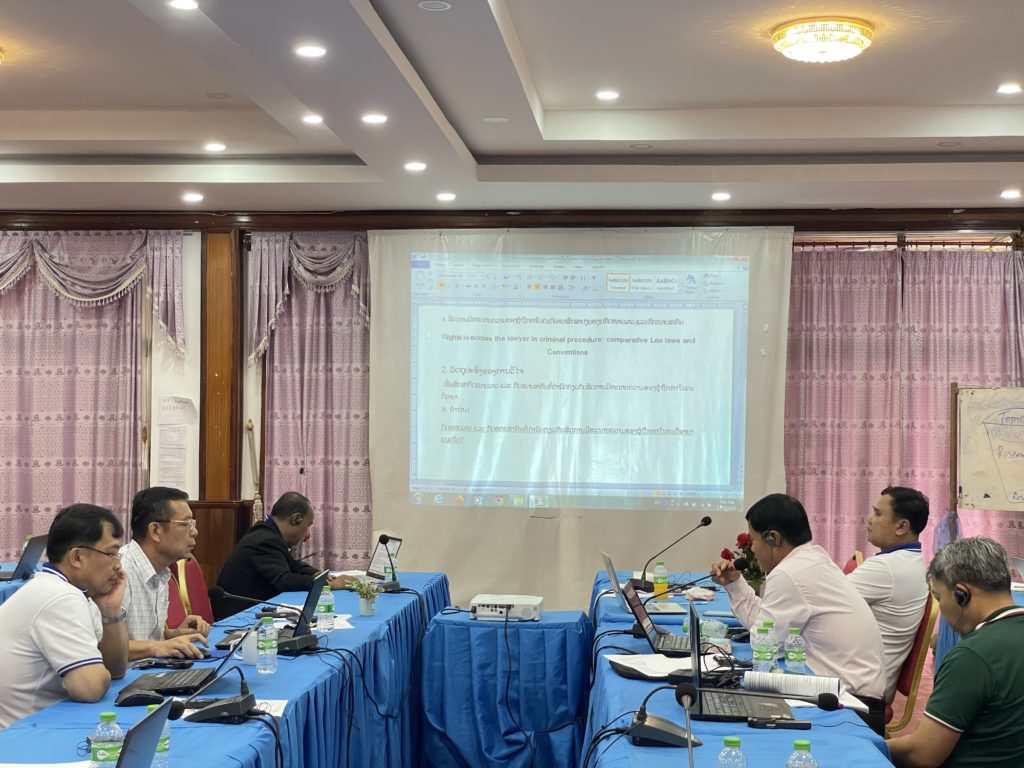
On the third day of the workshop, participants were given instructions on how to use the research tool step-by-step to understand both qualitative and quantitative research. In the afternoon, Ms. Paulina Baschton gave a presentation basic legal research methodology. The participants revisited the key elements for good research proposals and were given time to apply the learned structure to their research proposals. She also recapped different types of research methodologies, as FLP researchers tend to limit themselves to only qualitative and quantitative research.
On the fourth day of the workshop, participants had the opportunity to discuss and interact with each other. Ms. Paulina Baschton began the day with a brief presentation on important elements and key questions of legal research. During the presentation, there was a lot of discussion on distinguishing research objectives and research questions and the need to identify a strong research question. Participants also discussed the problems that can arise with a too broad or too narrow research question. Afterwards, participants were invited to present their research topics that they had come up with during the previous workshop organized by the research department. Ms. Paulina provided feedback on their presentations, specifically on the research objectives and research questions. Many interesting research topics were presented by the participants.
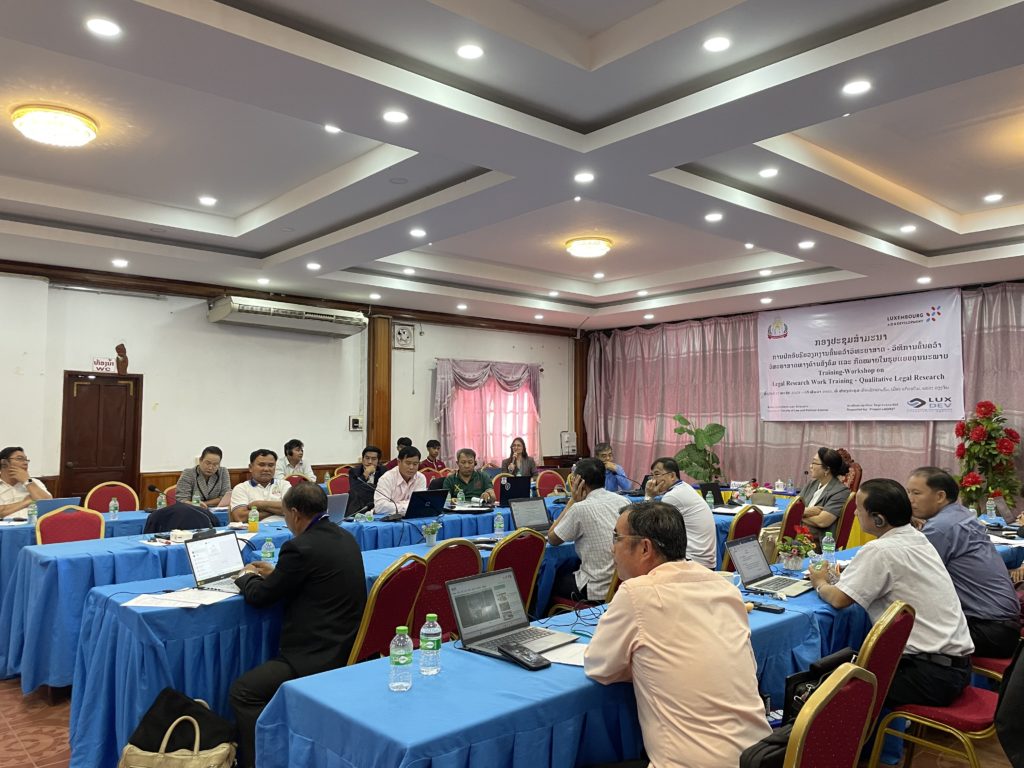
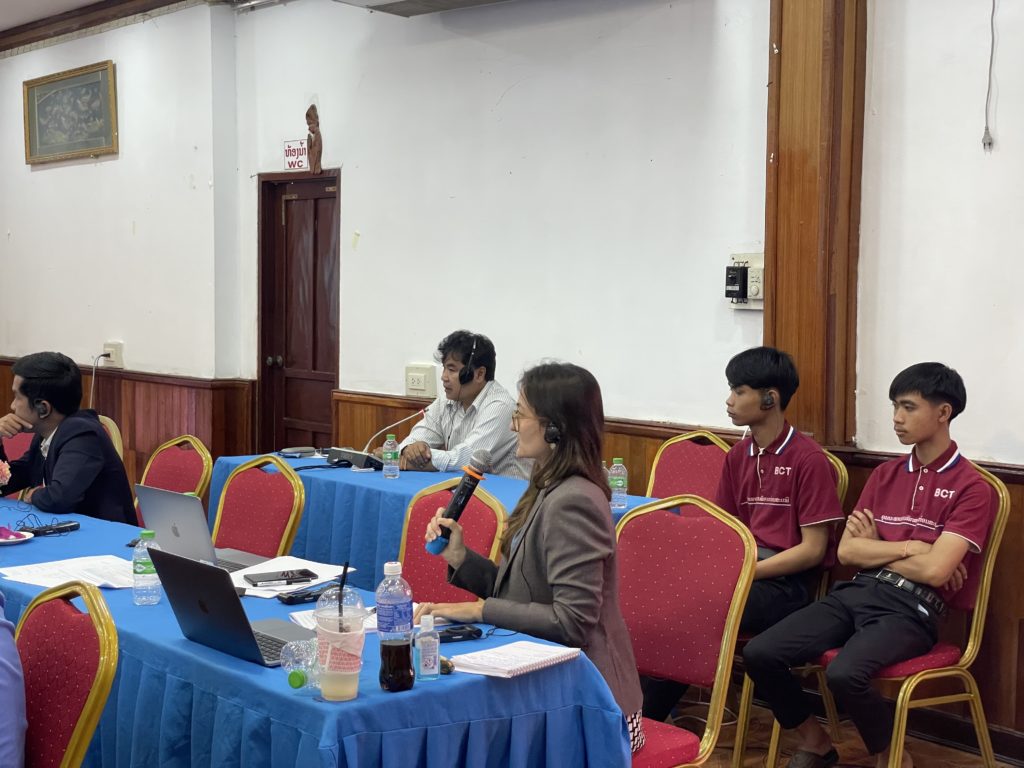
The last day of the workshop was chaired by Assoc. Prof. Viengvilay Theingchanxay, the Dean of the FLP. The workshop focused on finding relevant legal sources for research and began with Mr. Patthanaphone Nammalath, the Project Assistant, giving a brief instruction on how to register and use OpenAthens. OpenAthens is a platform supported by the project to enable remote access to the e-library. Mr. Patthanaphone made sure that all participants were able to access the e-library remotely. Participants were then assigned the task by Ms. Paulina to find two relevant sources related to the topic they presented on the fourth day using the e-library. After the participants found and presented the sources and shared the difficulties they encountered in finding pertinent sources, Ms. Paulina provided feedback on how to define relevant keywords for their research. The participants discussed the difficulties associated with finding sources for legal research in Laos due to the limited literature in Lao language and the difficulties in finding appropriate key words for platforms like the e-library which always includes translations from Lao into English or Thai language.
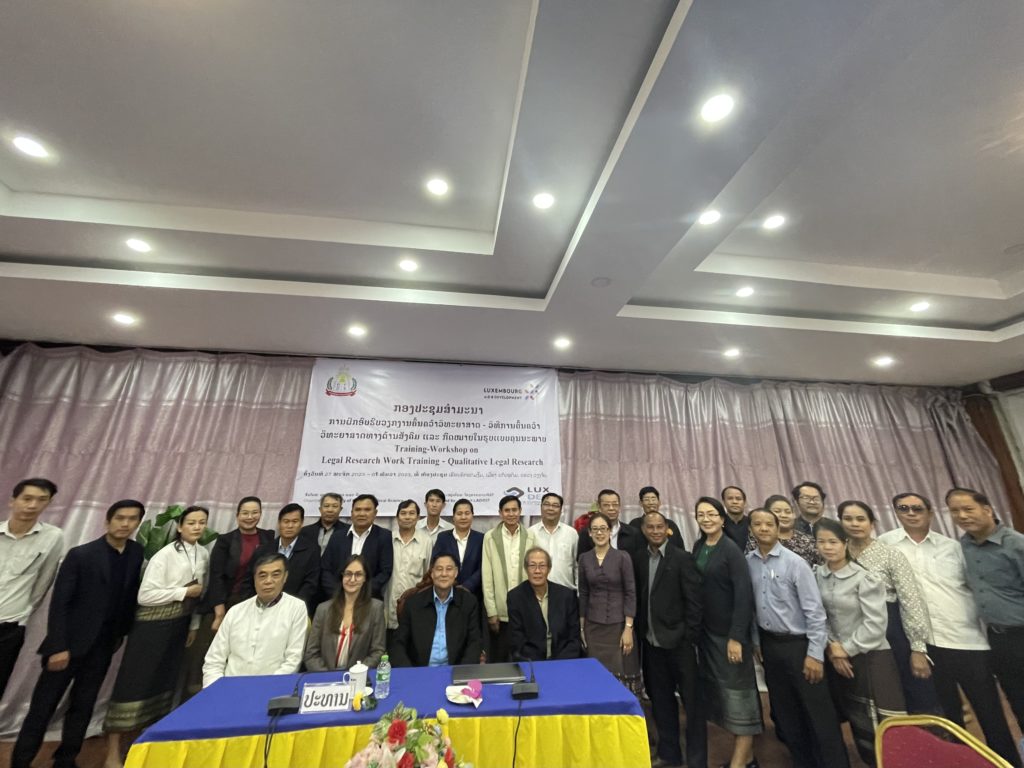
During the workshop, the participants showed an open-minded approach and actively engaged in constructive discussions and activities and assignments. They raised many questions about legal research and methodology, academic integrity, and how these concepts apply in the context of Lao academia. The workshop was a unique and fruitful gathering of the future “Lao research community,” which emphasized the need for further collaboration to encourage quality legal research. Lastly, at the end of the workshop, the participants were encouraged to participate in the research forum scheduled for December 15th.
